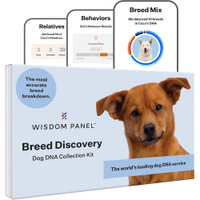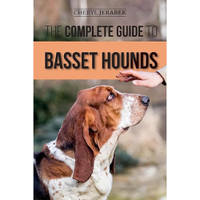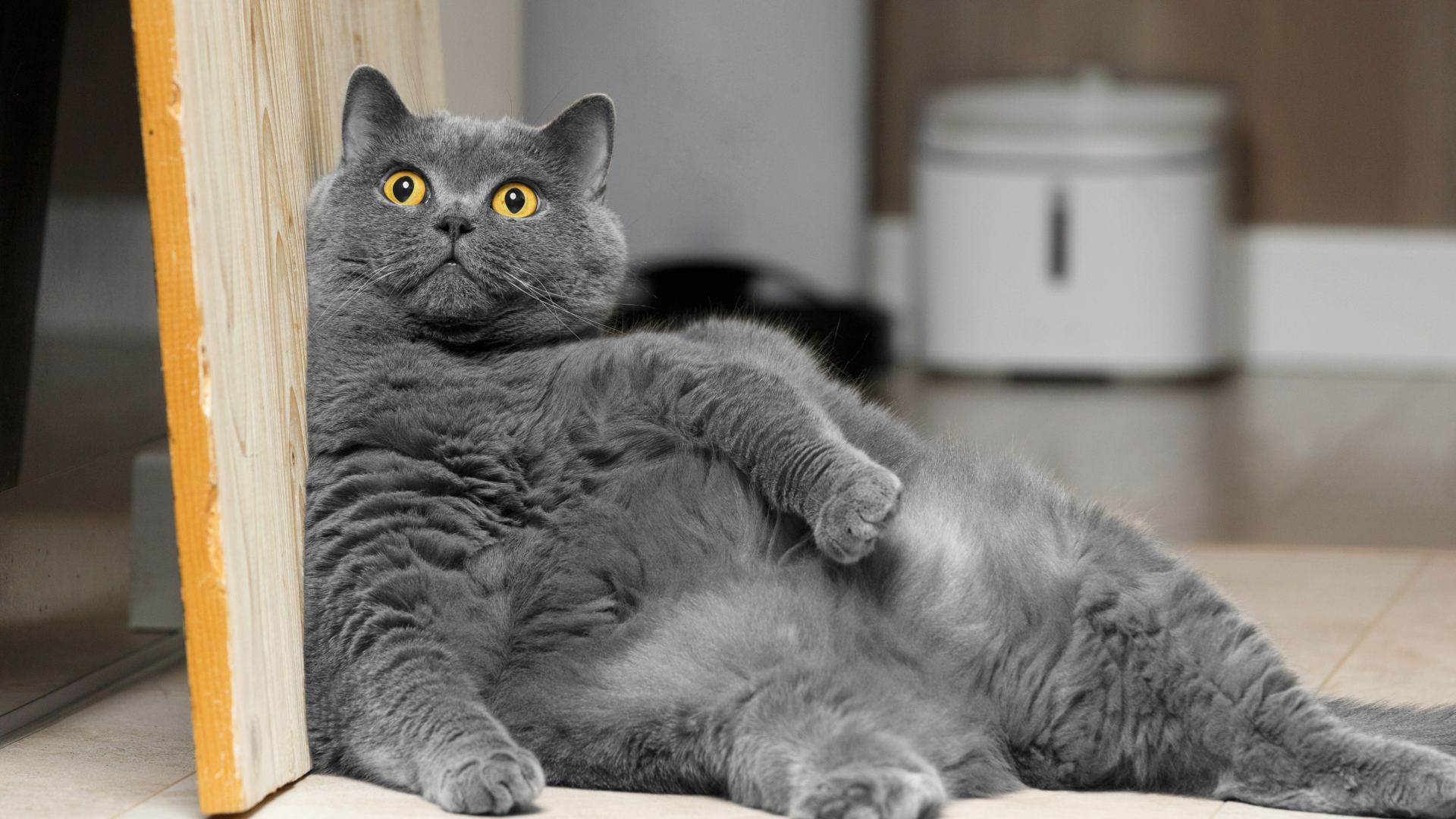Basset Hound: A breed that is low on the ground but high on love
Learn more about these loving companions with their big ears, soulful eyes and hearts of gold
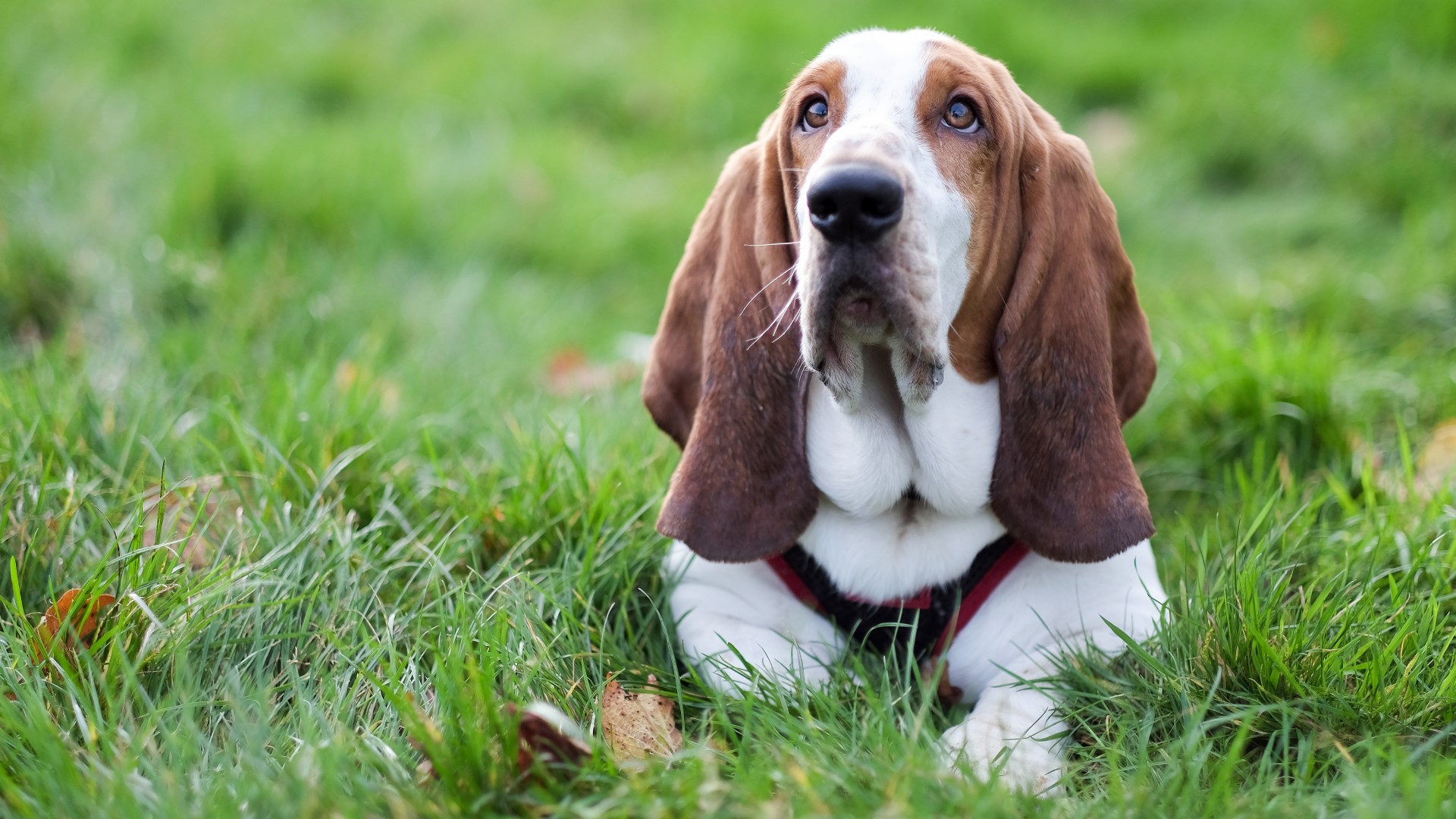
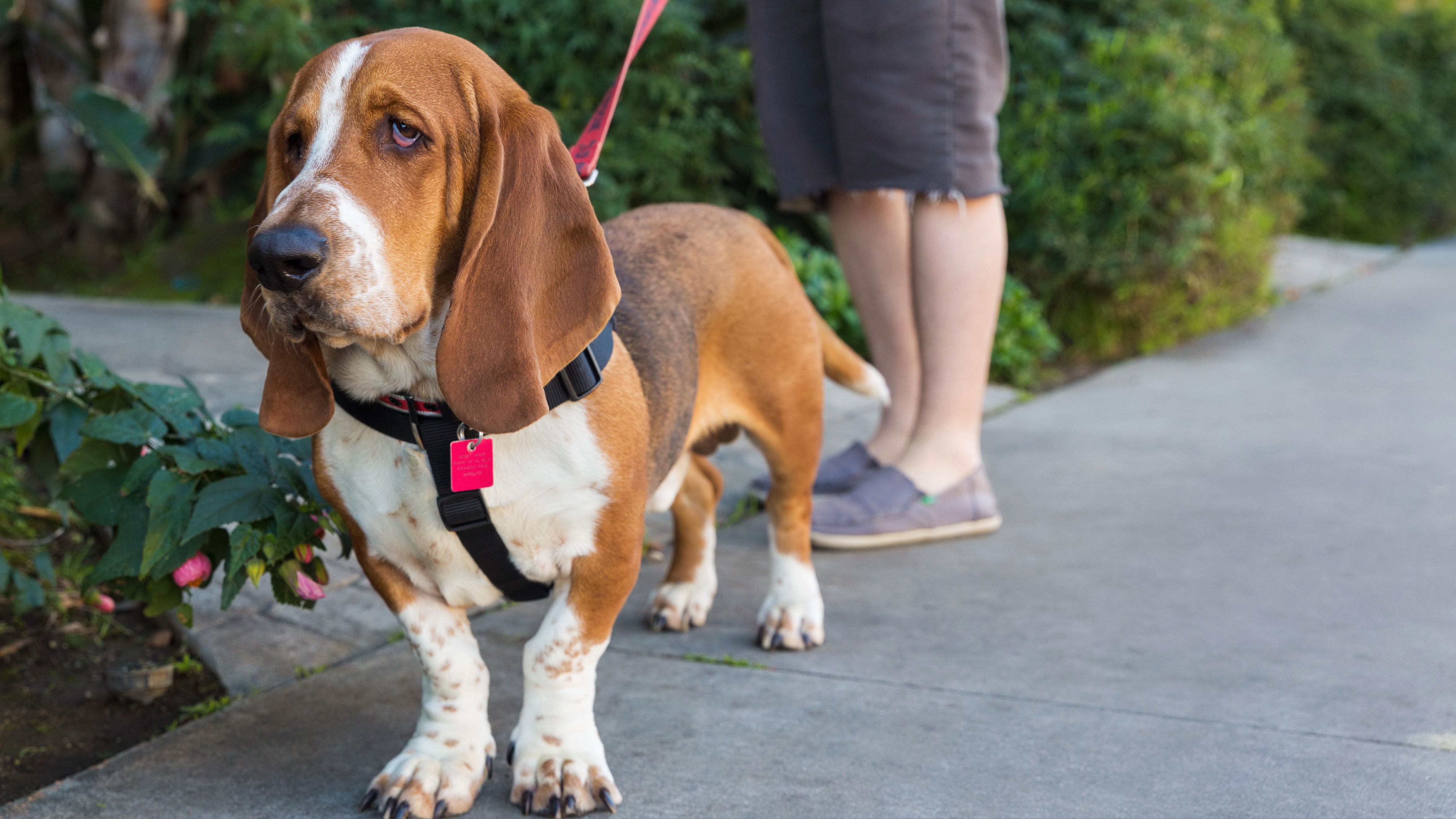
Life expectancy: 10to 12 years
Size: 12-15 inches (male); 11-14 inches (female)
Coat: Short and smooth
Temperament: Devoted, gentle, affectionate, sweet-tempered, friendly
Exercise needs: An hour daily
Origin/native country: France
Originating in France in around 700 CE, basset hounds are extraordinarily talented. Their ability to pick up scents from far away, have made them more than suitable hunters. And while their laid-back demeanour often sees them labelled as lazy, their stamina in pursuing prey has actually shown them to be rather energetic.
Although bred as a hunting breed, they are nonetheless popular pets and that’s generally because they’re loyal and loving. Highly social and friendly, these hounds are never going to make a good guard dog but they’ll certainly make you laugh and prove to be a joy to have around.
How much attention does a Basset Hound need?
Basset Hounds crave attention and human interaction. They love being close to their owners and they’re hugely affectionate – you can’t help fall in love with their little droopy faces and floppy ears. They’ll snuggle up to family members and act like a shadow as they follow people around. They’ll become excited when someone comes home and they’ll bring objects as gifts. But there are some downsides.
“They will thrive with plenty of positive attention but may become frustrated if they don’t get enough,” says vet Dr Rebecca MacMillan. “This could lead to problems such as separation anxiety and destructive behaviors. It can also encourage Basset Hounds to vocalize for attention. It means you need to concentrate on play, training exercises, and stimulating toys to keep them mentally fulfilled.”
Do Basset Hounds need a lot of exercise?
Unlike other scent hound breeds, Basset Hounds only require moderate amounts of exercise.
“Basset Hounds should do well on 30 to 60 minutes per day depending on their age and mobility,” says Dr MacMillan, and that should be well within the scope of most owners. As well as ensuring they keep fit and healthy, exercising ensures they don’t pile on the pounds, something they can be prone to do given they like to eat. Obese Basset Hounds have an increased risk of arthritis and they can develop breathing difficulties so keeping them trim is a must.
Be sure to exercise puppies sparingly as they grow so as not to put pressure on their joints and try to maintain interest and provide mental stimulation by playing scent games. Basset Hounds have an amazing, strong sense of smell – second only to the Bloodhound – and their ears play a big part in this. They sweep the ground and stir scent towards their nose. The smells are then kept close to the face by the droopy skin. All you need to do is put a distinctive smell on a favorite toy and leave in a challenging place for them to sniff out.
PetsRadar Newsletter
Get the best advice, tips and top tech for your beloved Pets
Why do Basset Hounds bark a lot?
Basset Hounds are quite vocal and they have a loud, braying bark.
“This comes as a surprise to some pet owners, given their dog’s small height,” says Dr MacMillan. So why do they do it? In some cases, it’s because the breed is frustrated but this can be tackled.
“The right early socialization and training can reduce the risk of excessive barking,” Dr MacMillan says. “Plenty of exercise and mental stimulation will also keep boredom and frustration at bay, reducing their tendency to vocalise.”
But Basset Hounds can also bark loudly when they are excited and this enables them to communicate their enthusiasm. Since their bark is capable of travelling long distances, it’s not really something you can ignore but you may have to live with that one – often paying a lot of attention to the dog at this point can help.
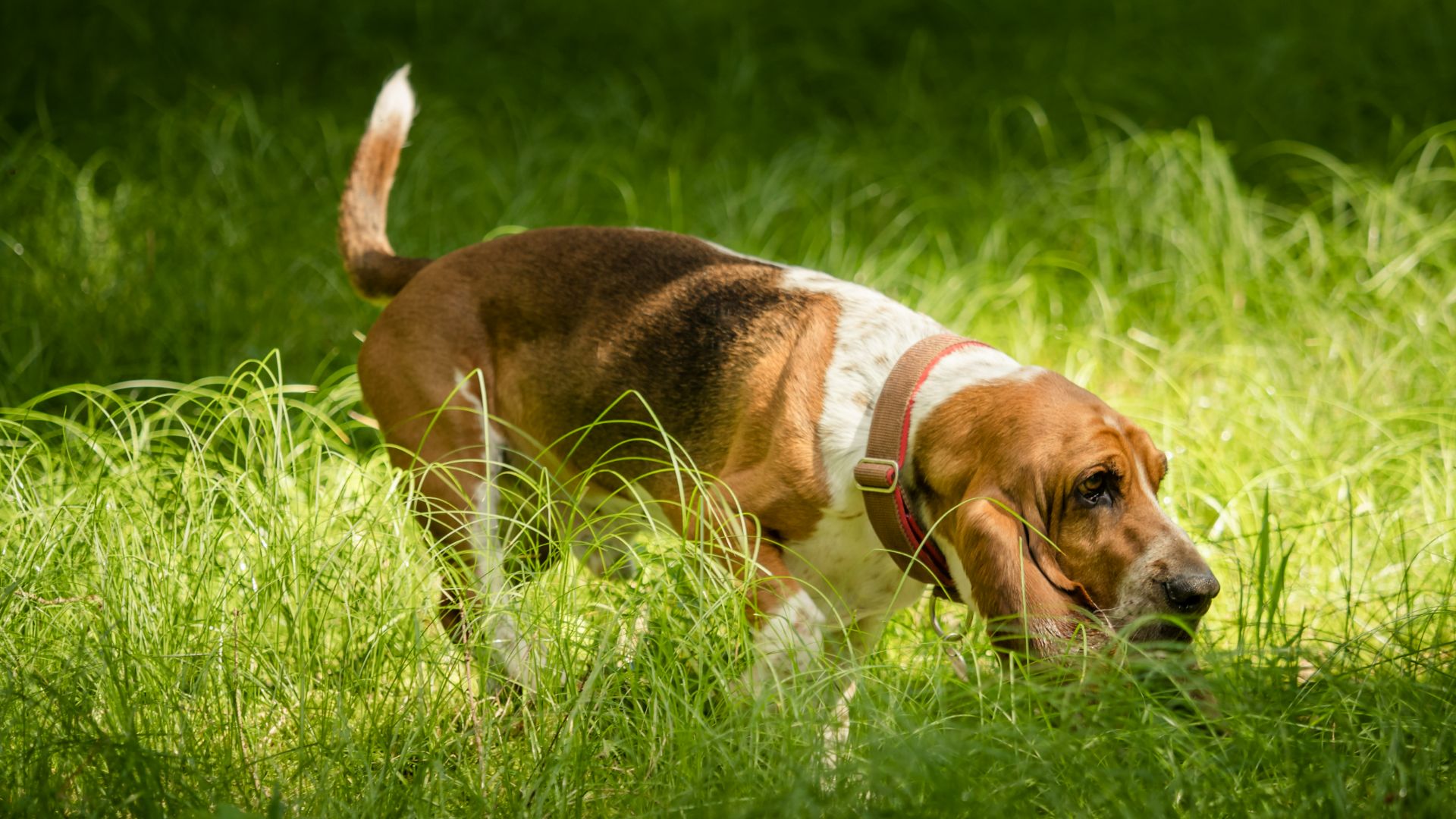
Are Basset Hounds easy to train?
Basset Hounds are a fairly intelligent breed but they are also stubborn, which can made training a little more difficult. The trick is to start as early as possible and use lots of positive reinforcement while being patient and consistent. Dishing out treats works well but don’t over do it – never allow treats to make up more than 10% of a Basset Hound’s calorie intake.
Be aware too that Basset Hounds can be easily distracted by strong smells – in fact, they were originally bred to be one of the best tracking dogs. So, either use heavily scented items to focus their attention, ensure they’re on a lead (a good idea in general in case they suddenly decide to target prey due to their high prey drive), or train them in areas that are relatively neutral on the nose. Getting them to know as many different environments as possible early on will help too.
Do Basset Hounds need a lot of grooming?
You may want a towel handy if you own a Basset Hound because they are known to drool and sometimes fling saliva around. But the good news is they don’t require a lot of grooming. “They are a very easy and low maintenance breed and their short fur means that weekly brushing should be enough to keep their coat looking good,” says Dr MacMillan.
Just pay attention to their ears, ensuring they remain clean – don’t forget they frequently sweep the ground and they can be prone to infection. It’s also worth bearing in mind that Basset Hounds shed but you should be able to handle it.
“They only shed a moderate amount – certainly not as much as some other breeds,” Dr MacMillan adds. “You may experience periods where they shed more heavily though, which usually occurs twice a year.
Do Basset Hounds make good family pets?
Basset Hounds are wonderful family pets. One of the best breeds for families, they get along with children and you’ll find they’re very tolerant, friendly and adoring. As well as keeping a watchful eye on kids, they’ll likely prove to be a great, playful pal and they won’t become upset if there’s a lot of household noise either. What’s more, they will also cope well around other dogs and pets, particularly if you introduce them early. You’re not going to have too many problems here.
Wisdom Panel Breed Discovery DNA Kit | Amazon
Not sure exactly what breed your dog is? This kit screens for 365+ breeds – because knowing every detail about your dog helps you understand how best to care for them.
Basset Hounds common health problems
There are a few common health complaints that you need to be aware of and one of them relates to the fact Basset Hounds are a chondrodystrophic breed, which means they have abnormal cartilage development.
“This is what gives them their characteristic short legs and it is a trait shared with breeds such as dachshunds and French Bulldogs,” says Dr MacMillan.
The main issue is that this inherited feature leaves these dogs at greater risk of serious problems like intervertebral disc disease (IVDD).
“They are much more likely to suffer from premature deterioration of the discs in their spinal cord, Dr MacMillan adds. “These discs give the spine its normal function and flexibility. Affected dogs can have sudden onset nerve issues and pain, including paralysis. Affected dogs may require referral-level surgery to correct their condition.
Another problem with chondrodystrophy is that angular limb deformities can occur in developing puppies. “This means the legs become bowed or twisted as they grow, putting excessive pressure on nearby joints,” Dr MacMillan continues. “Hip and elbow dysplasia is also common in Basset Hounds, like many other pedigree breeds. All these things mean mobility issues and early onset arthritis is a big risk.
As mentioned early, Basset hounds are also prone to recurrent ear and skin infections. “Their big, loveable ears trap moisture and warmth in the ear canal. Yeast and bacteria thrive when there is no circulating airflow, causing inflammation, pain, and discharge,” Dr MacMillan says.
“The Basset Hound’s big saggy eyes are another problem area. Eyelids that roll outwards (ectropion) or eyelids that roll inwards (entropion) can both cause issues to the health of the eye itself. Corrective surgery may be required for some dogs. Left untreated recurrent eye ulcers are likely which are not only painful but could affect your pet’s vision.”
Should I buy a Basset Hound?
Basset Hounds are a wonderful fit for so many people. They’re great family dogs, they’re low maintenance and they won’t demand multiple hours of exercise each day. They’re playful, affectionate and incredibly cute and while they’re usually calm, they can also be energetic, which means they’re bags of fun. The main problem is barking and health conditions that can cause worry. But they’re otherwise a great choice.
The Complete Guide To Basset Hounds | Amazon
Using interviews with seven top Basset Hound breeders, this book is in-depth look at what it really takes to successfully live with, raise, and train a Basset Hound. It includes practical tips, tricks, and insights to help any new or seasoned Basset Hound owner.
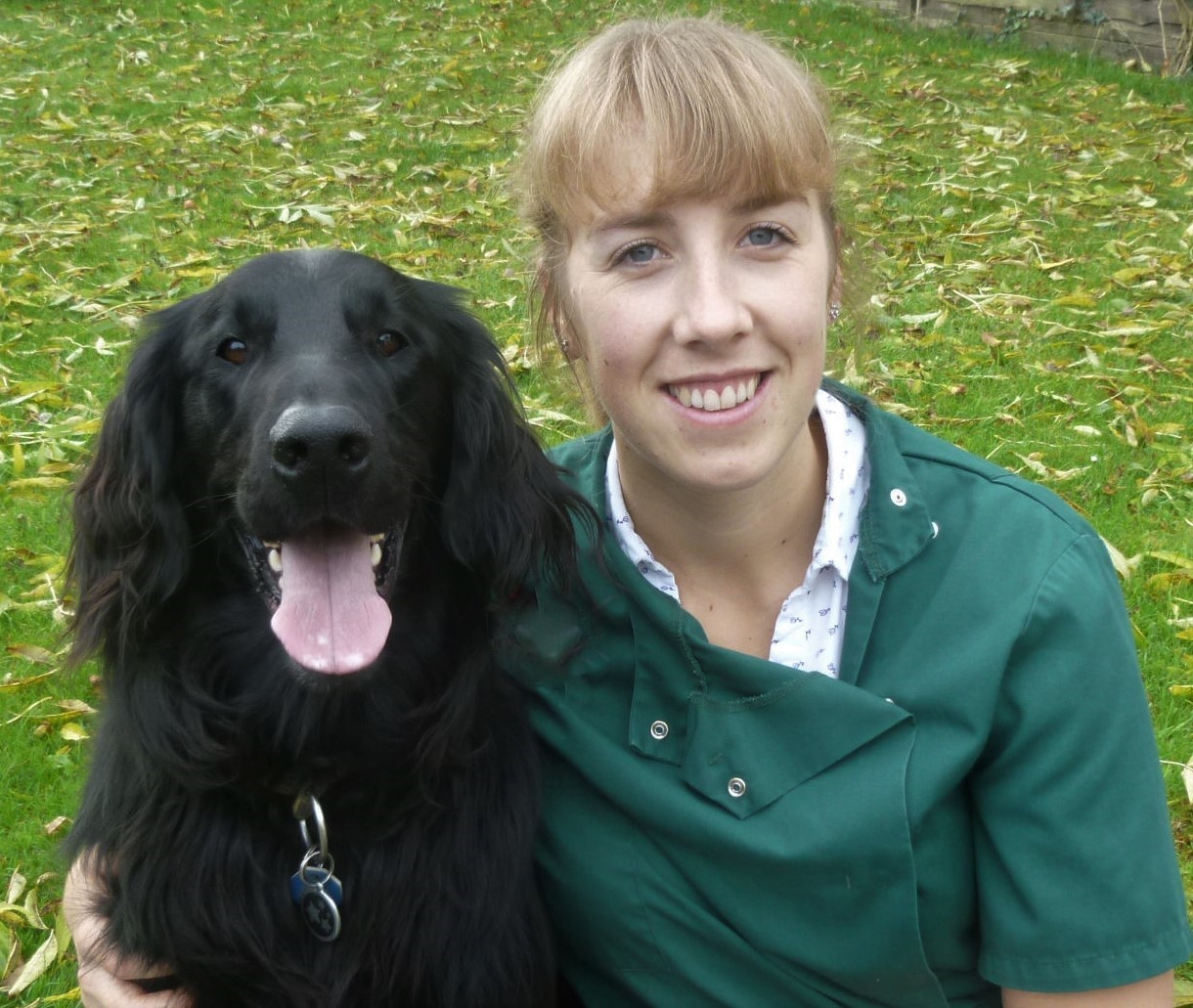
Rebecca is a veterinary surgeon who graduated in 2009 from the Royal Veterinary College in London. She has a wealth of experience in first opinion small animal practice, having done a mixture of day-to-day routine work, on-call emergency duties and managerial roles over the years. Rebecca enjoys medicine in particular and she is proud to have recently achieved a BSAVA postgraduate certificate in small animal medicine (with commendation).
She writes on various feline and canine topics, including behavior, nutrition, and health. Outside of work and writing she enjoys walking her own dog, spending time with her young family and baking!
Edited by Georgia Guerin.
Recent updates
This feature was last updated on February 14, 2025.

David Crookes has been a journalist for almost 30 years and he has written for a host of magazines, newspapers, websites and books including the World of Animals Annual, BBC Earth, Live Science, The Independent and Tom’s Guide.
Born in England, he lives with two cats but he’s also keenly interested in the differences between the huge number of dog breeds – in fact, you can read many of his breed guides that he’s written in collaboration with vets here on PetsRadar.
With a lifelong passion for technology, too, he’s always on the lookout for useful devices that will allow people to keep their pets happier and healthier, and provide them more time to spend together.
David has a degree from Durham University, as well as postgraduate diploma in journalism from the University of Central Lancashire.
